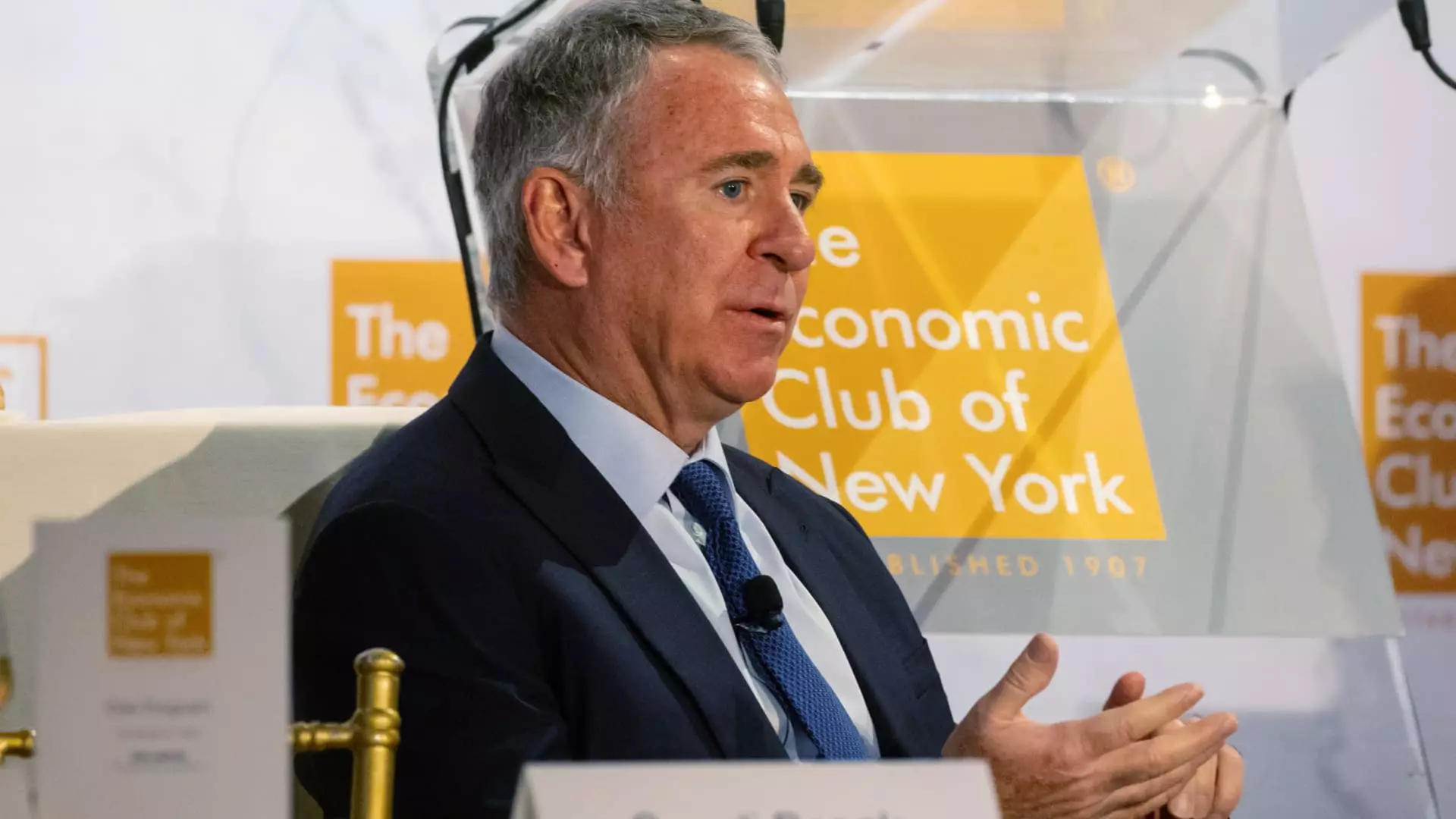In a recent address at the Economic Club of New York, Ken Griffin, the esteemed CEO of Citadel, cast a critical eye on the impending trade policies proposed by President-elect Donald Trump. Griffin’s insights provide a profound perspective on the repercussions of tariffs—a subject that consistently garners heated debate among economists, business leaders, and policy makers alike.
Griffin raised alarms over the potential short-lived advantages that tariffs might grant to domestic corporations. He articulated that while companies may experience an initial surge—akin to a “sugar rush”—from reduced competition, this benefit could lead to stagnation and complacency. Ultimately, businesses could find themselves less competitive not just internationally, but also in serving the domestic market. This short-sighted view can create a false sense of security for companies, allowing them to rely on tariffs rather than innovate and improve their offerings to consumers.
At the heart of Griffin’s critique lies the threat of crony capitalism—a system where privileged businesses forge unduly close relationships with government officials. He cautioned that the inflation of tariffs could lead to a scenario where lobbying and special interests overshadow the needs of the consumer, resulting in protected but inefficient businesses that fail to innovate. This relationship between politics and business could potentially stifle competition and exalt mediocrity in American industry, ultimately harming economic dynamism.
The CEO warned that excessive reliance on protectionist policies could reverberate through the economy, particularly in a time of fragile recovery from pandemic-induced disruptions. As production costs rise due to higher tariffs, consumer prices may also spike, adding strain to household budgets. Griffin articulated a vision of an economy that, burdened by ill-conceived trade policies, may slow its recovery and further alienate consumers from the benefits of a competitive market.
Griffin’s perspective invites a broader discussion on the imperative of fostering a competitive landscape in American business. By focusing on innovation and responding to consumer demands rather than resting on the laurels of governmental support, American companies can better position themselves on a global stage. As he advised during the event, the emphasis should not be on maintaining a cozy relationship between government and industry, but rather on enhancing the abilities of businesses to thrive through merit and competitiveness.
As Citadel charts its course for the future without rushing into public offerings, it remains indicative of a philosophy that values sustainable growth and strategic investment over fleeting advantages. Ken Griffin’s warnings should be a compelling call for policymakers to reflect on the wisdom of encouraging competition, innovation, and ultimately, economic resilience over short-term gains.

